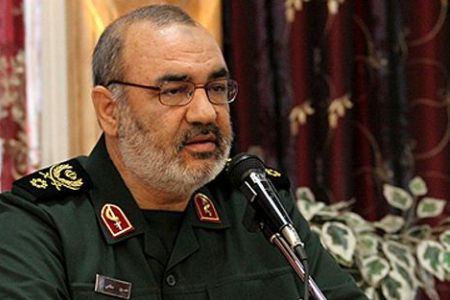February 07-2014

President Obama barely mentioned Iran in his State of the Union address to Congress last Tuesday, but the Islamic Republic went to great lengths to condemn what Obama said.
Obama said nothing new at all in the mere five paragraphs—4 percent of his address—that he devoted to Iran. He repeated only things he has said in the past and broke no new ground at all.
Much of his speech to Congress was actually addressed to the television audience around the country. But when it came to Iran, he was clearly addressing Congress itself and trying to discourage it from imposing any new sanctions. He used the occasion to repeat his oft-uttered threat to veto any new sanctions Congress might enact.
But what offended the regime in Tehran was Obama’s assertion that current sanctions have so battered Iran’s economy that the government there was forced to come to the negotiating table seeking relief.
Foreign Ministry spokeswoman Marziyeh Afkham called that an American “illusion.”
She said Obama has “a totally incorrect interpretation of Iran’s willingness to create a new opportunity for Western countries to forge a different kind of relationship with the Iranian people and try to win the confidence of this great nation.”
But that picture of an opportunity for close relations contradicts what her boss, Foreign Minister Mohammad-Javad Zarif, has said repeatedly. He has emphasized that the talks are only about the nuclear issue and that Iran is not interested in discussing other issues or resuming normal diplomatic relations with the United States.
CNN interviewed Zarif after the speech, and Zarif dismissed Obama’s comments, saying Obama was simply trying “to spin it for domestic consumption,” which few analysts would dispute.
At Tehran Friday prayers three days after the speech, Ayatollah Ahmad Khatami accused Obama of promoting a “lie” that Iran was building nuclear weapons. Actually, Obama didn’t accuse Iran of building nuclear weapons—and never has.
Ali-Akbar Velayati, the senior foreign policy adviser to Supreme Leader Ali Khamenehi, also focused on Obama’s assertion that sanctions forced Iran to the negotiating table. “Iran is determined to continue the talks to safeguard the integrity of its peaceful nuclear rights,” Velayati said. “Obama’s comments about the impact of US pressure on Iran were nothing new.”
Here is the full text of the five paragraphs Obama included about Iran in his State of the Union address:
“And it is American diplomacy, backed by pressure, that has halted the progress of Iran’s nuclear program—and rolled back parts of that program—for the very first time in a decade. As we gather here tonight, Iran has begun to eliminate its stockpile of higher levels of enriched uranium.
“It’s not installing advanced centrifuges. Unprecedented inspections help the world verify every day that Iran is not building a bomb. And with our allies and partners, we’re engaged in negotiations to see if we can peacefully achieve a goal we all share: preventing Iran from obtaining a nuclear weapon. (Applause.)
“These negotiations will be difficult; they may not succeed. We are clear-eyed about Iran’s support for terrorist organizations like Hezbollah, which threaten our allies; and we’re clear about the mistrust between our nations, mistrust that cannot be wished away. But these negotiations don’t rely on trust; any long-term deal we agree to must be based on verifiable action that convinces us and the international community that Iran is not building a nuclear bomb. If John F. Kennedy and Ronald Reagan could negotiate with the Soviet Union, then surely a strong and confident America can negotiate with less powerful adversaries today. (Applause.)
“The sanctions that we put in place helped make this opportunity possible. But let me be clear: if this Congress sends me a new sanctions bill now that threatens to derail these talks, I will veto it. (Applause.) For the sake of our national security, we must give diplomacy a chance to succeed. (Applause.)
“If Iran’s leaders do not seize this opportunity, then I will be the first to call for more sanctions and stand ready to exercise all options to make sure Iran does not build a nuclear weapon. But if Iran’s leaders do seize the chance—and we’ll know soon enough—then Iran could take an important step to rejoin the community of nations, and we will have resolved one of the leading security challenges of our time without the risks of war.”























